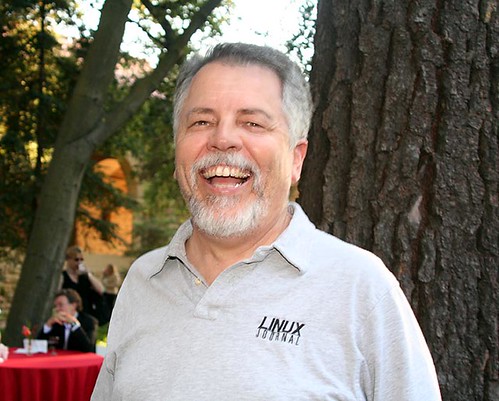Review of ‘The Intention Economy’ by Doc Searls
Review by J.D. Lasica
Title: “The Intention Economy″
Author: Doc Searls
My rating: ☆☆☆☆☆
Release date: May 1, 2012
 In “The Intention Economy” (Harvard Business Review Press), Doc Searls picks up where he left off as co-author of “The Cluetrain Manifesto,” the seminal 2000 book that coined the phrase “conversations are markets” and ushered in a new understanding of how the Internet has changed the power relationship between institutions and individuals.
In “The Intention Economy” (Harvard Business Review Press), Doc Searls picks up where he left off as co-author of “The Cluetrain Manifesto,” the seminal 2000 book that coined the phrase “conversations are markets” and ushered in a new understanding of how the Internet has changed the power relationship between institutions and individuals.
In his new book, Searls takes things a step further, painting a picture of what happens “when customers take charge” of this often dysfunctional relationship. Searls describes the tiny buds and sprouts of an emerging Intention Economy driven by customer demand and customer intent, an economy he believes has the potential to supplement and perhaps displace the present-day Attention Economy, where companies mine for personal data about us — sometimes with comic ineptitude — so that they can match us with products we don’t want and don’t need.
In the Attention Economy, we are consumers, calves, couch potatoes and eyeballs. Not so in the Intention Economy, where empowered customers set the agenda for releasing their own data and set the terms for engagement with “vendors” (that is, businesses).

Doc still looks the same as when I photographed him at the Innovation Summit at Stanford seven years ago this week.
Doc, a longtime friend who wrote a positive blurb for my book “Darknet” and an alumnus fellow at Harvard’s Berkman Center, fills in the blanks for those of us who didn’t know such a movement existed. It even has a suitably geeky name, VRM, for vendor relationship management, to refer to the panoply of startups and projects that are trying to stretch capitalism in new directions rather than undermine it. (Doc runs ProjectVRM at Berkmann.)
In this new assertion of customer power, where we shed our skins as passive consumers, we will tell businesses how they may serve us, notify the market about our intention and decide how much information about ourselves and our transactions to disclose. While specific examples are somewhat short in supply today, one gets the feeling that Doc is more interested in rallying entrepreneurs to this new approach with the entreaty, Come and build!
Along the way, Doc lays out the big picture in a way that few other writers and big thinkers can do, knowing when to zoom in and when to pull back to the 50,000-foot view. He astutely points out the cold calculations of the marketplace’s big players, like AT&T and Verizon — which are trying to define the Internet in terms of their business interests — as well as the world’s most valuable company:
“So, like Apple, Google wants to fix slow, damaged, or broken markets. But unlike Apple, Google wants to fix those markets by making them freer and more open for everybody — and therefore much larger as well. That is, to grow markets horizontally.”
Short version: If Apple can’t own something, it has no interest in nurturing it.
Doc looks back and as well as looking forward
His riff on the prognostications in the 1982 movie Blade Runner — some dead on, some painfully off (we still need pay phones today?) — is pure gold:
“Now imagine you’re back in 1982. Somebody tells you that in twelve years , the world will adopt a new communications system that nobody owns, everybody can use, and anybody can improve. The system will be all-digital and will provide ways for anybody to communicate with anybody, anywhere in the world, and to copy and share anything that can be digitized — including mail, print publications, music, radio streams, TV programs, and movies — at costs that approach zero. Would you believe it? …
“My point: The Net is more than a new development, more than a game changer. It is a new environment for business, culture, and human interactions of all kinds. It is also a perfect example of how the miraculous becomes mundane. The Internet is now so common, so ordinary, that we hardly pause to get perspective on how radically it has changed nearly everything it connects.”
This is a business book geared to marketers, business executives, entrepreneurs and academics, but it’s fun, insightful reading for anyone interested in becoming “self-actualized, liberated customers.”
Cross-posted to Socialmedia.biz.
Related
• The Intention Economy on Amazon





